The Environmental Health Coalition works to confront the unjust consequences of toxic pollution, discriminatory land use, and climate change in the San Diego/Tijuana region. Founded in 1980, EHC organizes and advocates through leadership development and community organizing.
Civic Engagement & Voting Rights
Focus Area: Civic Engagement & Voting Rights
Back to Directory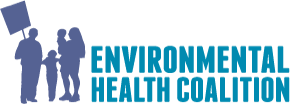

Little Village Environmental Justice Organization
The mission of LVEJO is to organize with our community to accomplish environmental justice in Little Village and achieve the self-determination of immigrant, low-income, and working-class families. The vision of LVEJO is to build a sustainable community that promotes the healthy development of youth and families, provides economic justice, and practices participatory democracy and self-determination.
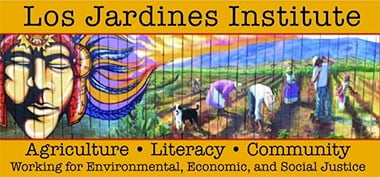
Los Jardines
The purpose of Los Jardines InstituteTM (The Gardens Institute) is to build and support healthy and sustainable communities and workplaces. It does this by creating opportunities that promote multigenerational learning, sharing and movement building.

Kentuckians for the Commonwealth
KFTC is a community of people inspired by a vision of a thriving society where people are free from oppression and where racial, economic and environmental justice exists for all. Guided by Black, Indigenous, People of Color, and others directly impacted by oppression, KFTC organizes Kentuckians to dismantle racism, reimagine democracy, and transform the future of our Commonwealth.
https://www.democracydocket.com/cases/kentucky-voter-purge-challenge/

Sowing Justice
Sowing Justice uses Environmental Justice principles, citizen science, and voter registration to foster civic engagement beyond voting, empowering communities to advocate for policies that ensure clean air, water, and soil, and to hold decision-making processes transparent and accountable.
https://www.yesmagazine.org/environment/2023/03/17/environmental-racism-memphis

South Bronx Unite
South Bronx United advances environmental, health, and social justice in Mott Haven-Port Morris through community organizing, advocacy, and research, working toward a thriving South Bronx with clean air, affordable housing, quality healthcare, living-wage jobs, and community-led decisions.
https://www.nytimes.com/2025/02/02/nyregion/congestion-pricing-air.html
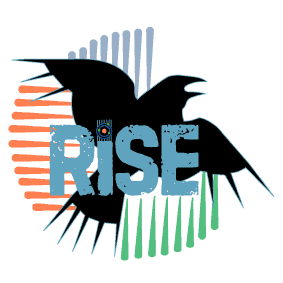
RISE for Environmental Justice
Our mission is to bring attention to the community led solutions in resistance to chemical exposures, environmental toxins, environmental racism and ecological destruction- all of which negatively impact the health and well-being of fenceline communities.
https://www.kmuw.org/2025-03-31/city-of-wichita-cuts-community-greenhouse-gas-reduction-goals
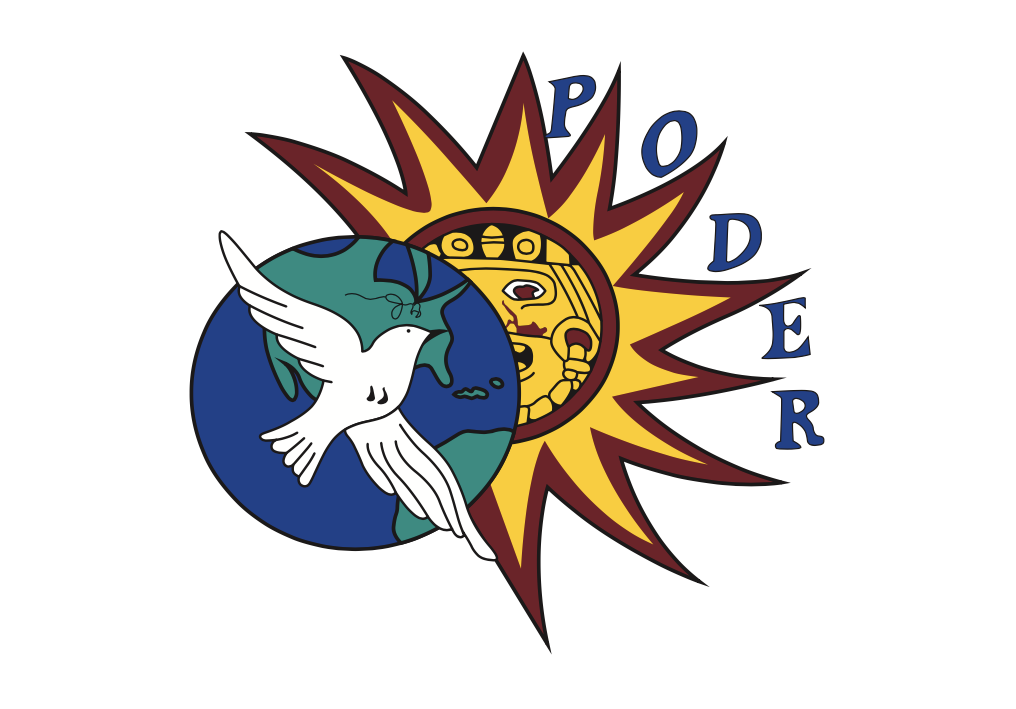
PODER – Austin
PODER (People Organized in Defense of Earth and Her Resources) is a women-led people of color grassroots organization in East Austin working sincere 1991 to advance environmental, social, and economic justice through community education, advocacy and action.
https://www.wbur.org/onpoint/2025/05/01/transformation-austin-texas-tech-red-state-liberal
https://www.bizjournals.com/austin/news/2024/04/10/susana-almanza-austin-poder.html

People For Community Recovery
People for Community Recovery (PCR), founded in 1979 by Hazel Johnson, the mother of the environmental justice movement, works to enhance quality of life for pollution-impacted residents through education, advocacy, and programs addressing environment, health, housing, and economic equity.
https://chicago.suntimes.com/environment/2025/03/07/hazel-johnson-environmental-justice-chicago-trump-epa-cheryl-johnson-altgeld-gardens
https://grist.org/cities/chicago-law-would-change-where-polluting-companies-operate/

North Carolina Environmental Justice Network
North Carolina Environmental Justice Network (NCEJN) is a grassroots, people of color-led coalition of community organizations and their supporters who work with low income communities and people of color on issues of climate, environmental, racial, and social injustice.
https://www.wxii12.com/article/buc-ees-opposition-groups-present-environmental-impact-report/64896668
https://ncnewsline.com/2024/12/09/coalition-demands-excessive-heat-protection-for-laborers/

North Carolina Climate Justice Collective
NC Climate Justice Collective (NCCJC) works with frontline communities to build grassroots power and movement infrastructure for a just transition to a regenerative economy where all people and the planet can thrive.
https://www.newsobserver.com/opinion/article271593212.html

Environmental Justice Health Alliance for Chemical Policy Reform
The Environmental Justice Health Alliance for Chemical Policy Reform advances a movement for safe chemicals and clean energy, addressing the disproportionate harm chemical and energy industries inflict on fence line communities of color, Indigenous, and low-income populations.
https://www.nrdc.org/bio/sara-imperiale/campaign-pushes-local-food-safe-products-dollar-general
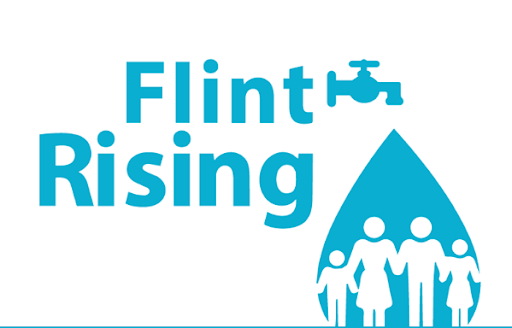
Flint Rising
Flint Rising works to provide accurate information and resources about the Flint Water Crisis. The organization is led by the residents of Flint, Michigan and partners with grassroots groups, volunteers, the labor movement and other allies to fight for justice.
https://earthjustice.org/press/2023/egle-epa-retreat-from-civil-rights-agreement-with-flint-groups
https://www.governing.com/infrastructure/why-is-there-still-lead-in-americas-water

Green Door Initiative, Inc.
The Green Door Initiative works to build environmental literacy and advance environmental justice for vulnerable Detroit residents, advocating for clean air, safe water, green jobs, and developing youth leadership in environmental advocacy.
https://www.axios.com/local/detroit/2024/03/05/workforce-development-green-door-initiative

Green Latinos
GreenLatinos is an active community of Latino/a/x leaders, emboldened by the power and wisdom of our culture, united to demand equity and dismantle racism, resourced to win our environmental, conservation, and climate justice battles, and driven to secure our political, economic, cultural, and environmental liberation. Our vision is a healthy and equitable society where communities of color are liberated from disproportionate environmental burdens, free to breathe fresh air, drink pure water, access clean transportation, and enjoy majestic public lands, oceans, and waters.
https://citylimits.org/the-campaign-to-debunk-climate-lies-in-latino-communities/

Alaska Community Action on Toxics
The Alaska Community Action on Toxics (ACAT) is a statewide environmental health and justice research and advocacy organization. ACAT believes everyone has a right to clean air and water and toxic-free foods. Driven by a core belief in environmental justice, ACAT empowers communities to eliminate exposure to toxic chemicals through collaborative research, shared science, education, organizing, and advocacy. ACAT works to eliminate the production and release of harmful chemicals by industry and military sources; ensure the public right-to-know; achieve policies based on the precautionary principle; and support the rights of Indigenous peoples.

Center for Earth, Energy and Democracy (CEED)
Working in collaboration with grassroots communities, policy makers and researchers, CEED conducts research and provides community education on important energy, environment, and development issues – so that all members of society may effectively participate in public decision-making.

Community In-Power & Development Association Inc (CIDA)
The Community In-Power & Development Association, Inc. empowers residents in low-income communities in Port Arthur, Texas to take action against neighboring chemical manufacturers, refineries and incinerator facilities. CIDA also works to transform dilapidated and underserved areas into desirable communities that have a strong economic base.
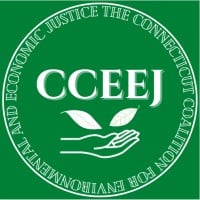
Connecticut Coalition for Environmental Justice
The mission of the Connecticut Coalition for Environmental Justice is to protect the health and welfare of urban centers by supporting efforts to reduce fossil power emissions in a responsible manner.

Deep South Center for Environmental Justice, Inc.
The Deep South Center for Environmental Justice is dedicated to improving the lives of children and families harmed by pollution and vulnerable to climate change in the Gulf Coast Region. Its work is focused on research, education, community and student engagement, policy change, and health and safety training for environmental careers.